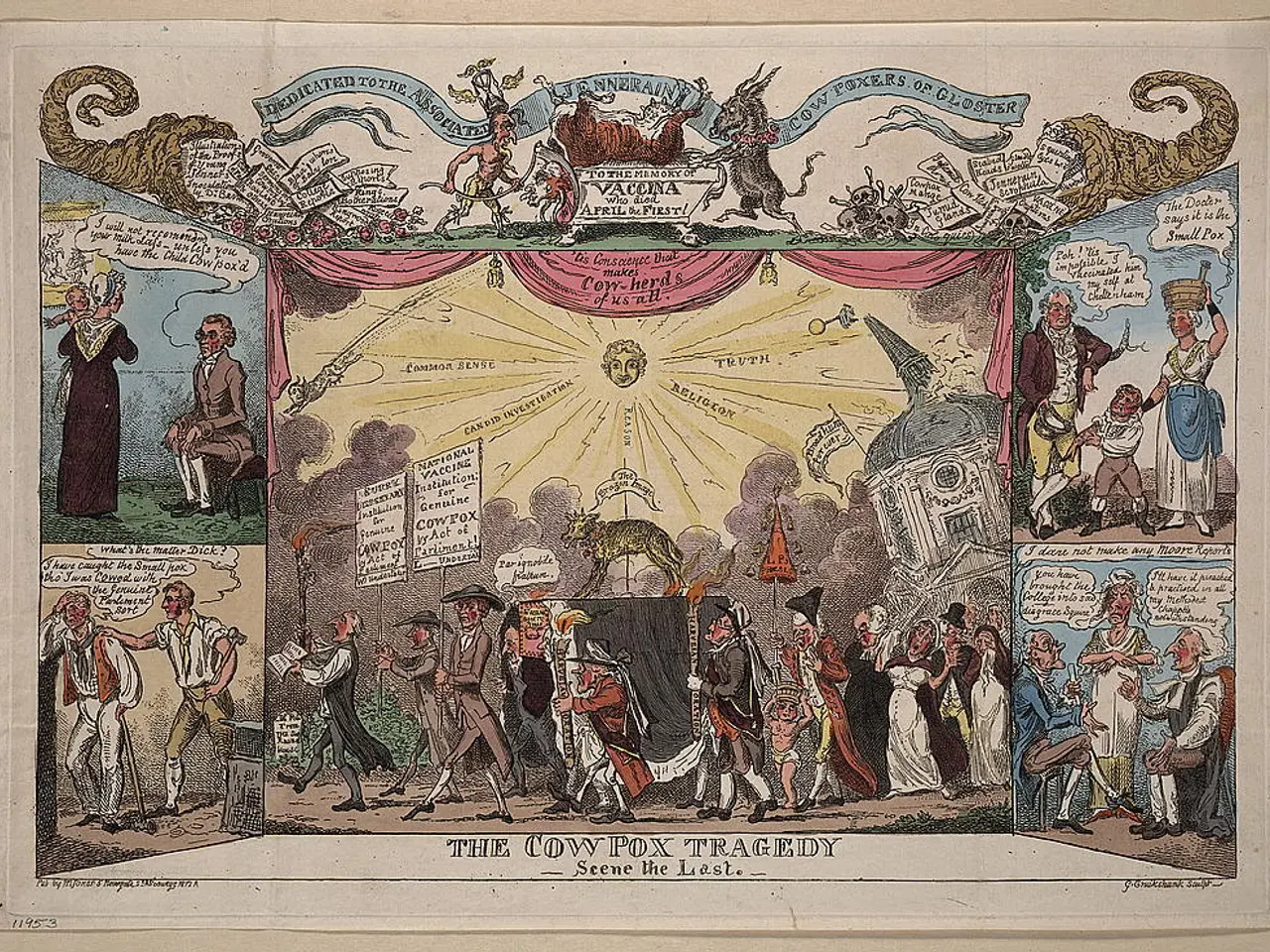Benito Mussolini's Ascendancy to Fascist Rule in Italy
In a significant turn of events on the morning of October 28, 1922, Prime Minister Luigi Facta and his cabinet resigned in protest. This action was a response to the 'March on Rome,' a strategic show of force led by Benito Mussolini and his Blackshirts, a fascist paramilitary unit.
Mussolini, the charismatic leader of the fascist movement in Italy, had founded the Italian Fasces of Combat in 1919 and later transformed the Blackshirts into the National Fascist Party in late 1921, growing the party's membership to 320,000. The Blackshirts were known for their willingness to use violence for political gain.
The 'March on Rome' saw Mussolini's supporters reach Rome on October 28, 1922. King Victor Emmanuel III, fearing civil war and instability, refused to use the army against them. As a result, Mussolini was invited to form a government without armed conflict.
Mussolini's rise to power in October 1922 marked a significant shift in Italian politics. His imperial ambitions led Italy to occupy the Greek island of Corfu, invade Ethiopia, and ally itself with Nazi Germany.
However, Mussolini's regime was not without controversy. His movement chipped away at the population's civil rights, forming a propagandistic police state. The Blackshirts terrorized socialists and Mussolini's personal enemies nationwide in 1920.
Mussolini's alliance with Nazi Germany resulted in the murder of 7,600-8,500 Italians in the Holocaust. His imperialist policies and authoritarian rule have left a lasting impact on Italy's history.
Despite his initial rise to power through peaceful means, Mussolini was eventually removed from power and placed under arrest on July 25, 1943, by his closest allies. The Italian government was powerless to dissolve the National Fascist Party as fascists took over most of northern Italy.
Born on July 29, 1883, in a small town in Italy, Mussolini came from humble beginnings. His father was a blacksmith, and his mother was a schoolteacher. Mussolini's expulsion from the Italian Socialist Party due to his pro-war advocacy marked the beginning of his political journey.
Giovanni Giolitti, Italy's Prime Minister, invited Mussolini to join the coalition government in 1921, but Mussolini's efforts to impose martial law were refused by Prime Minister Luigi Facta, leading to the events of October 1922.
Mussolini's influence over the Italian people was undeniable. He exercised a powerful influence using his personal charm and persuasive rhetoric. However, his legacy remains a complex and controversial topic in Italian history.
Read also:
- United States tariffs pose a threat to India, necessitating the recruitment of adept negotiators or strategists, similar to those who had influenced Trump's decisions.
- Weekly happenings in the German Federal Parliament (Bundestag)
- Southwest region's most popular posts, accompanied by an inquiry:
- Discussion between Putin and Trump in Alaska could potentially overshadow Ukraine's concerns







